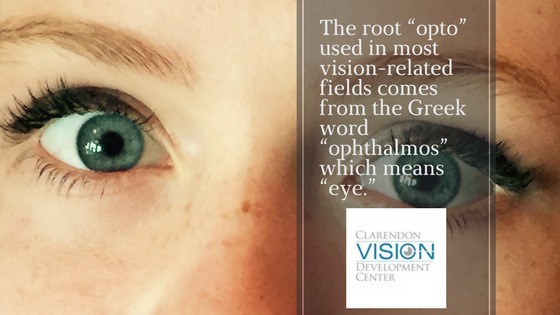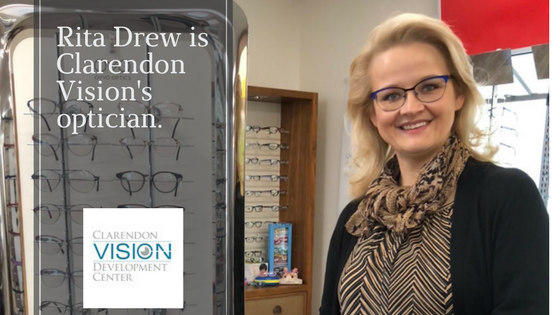Demystifying Eye Care
It can be confusing to figure out who to see when you have questions about your vision. There are ophthalmologists, optometrists, opticians. All those “op” healthcare providers are here to help you with your vision!

The root “opto” used in most vision-related fields comes from the Greek word “ophthalmos” which means “eye.” Vision and eye care have been concerns dating back to the very dawn of human civilization. Curious about the history of optometry and vision care? While we don’t have records from every era, this visual timeline explains what vision and eye care looked like starting in the 1200s.
At Clarendon Vision, we specialize in optometry. Optometrists are primary health care providers for vision. They are able to diagnose and treat a variety of vision-related issues from problems with visual acuity (being able to see 20/20), to challenges with functional vision like eye teaming or binocular vision. Developmental Optometrists like those we have at Clarendon Vision specialize in these functional vision issues, but like all optometrists are also considered primary health care providers for vision.
An ophthalmologist is a medical doctor who focuses on the treatment of eye disease and medical conditions of the eye, including performing surgery. Usually, optometrists do not perform surgery. Both optometrists and ophthalmologists are highly trained medical professionals who care about your vision and want you to be able to see your best. Unless you have a serious medical condition affecting your vision that requires surgery or specialty care, the type of eye doctor you see is a matter of personal preference.
A typical comprehensive eye exam at Clarendon Vision is a 30-45 minute visit with one of our optometrists. We focus on your unique visual needs so we can recommend the best solutions. A typical visit with an ophthalmologist is primarily focused on health and tends to last only 5-10 minutes with the doctor, though other healthcare professionals may perform testing, etc.

An optician fits and adjusts glasses or corrective lenses for your comfort and preference. Both ophthalmologists and optometrists typically have an optician in their office so you can get corrective lenses at the same place where you receive your vision exam. Clarendon Vision carries over 600 kinds of frames for glasses and we can order a wide range of contact lenses including multi-focal lenses, which are design to correct both near and far vision. Rita Drew is the optician at Clarendon Vision and she would love to show you the options for corrective lenses or eyeglasses frames to suit your needs.
No matter who you choose to see for your annual vision exam, the experts are unanimous: an annual or biannual comprehensive vision exam is the best way to identify changes in vision or detect diseases of the eye.



